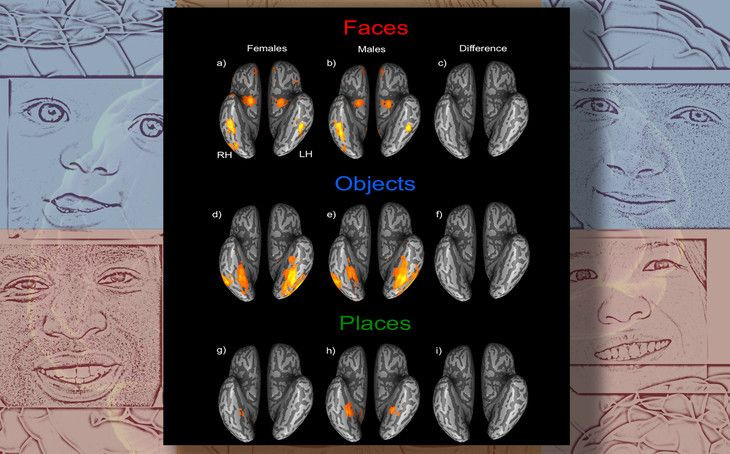Women Are No Better Than Men At Recognizing Faces, Study Says

Sorry ladies, turns out you’re no better at recognizing faces than men. Well, at least according to a new study. In fact, the researchers found neither women nor men have an exceptional ability to distinguish one face from another.
In the study, published in eNeuro, Penn State psychologists used behavioral tests and brain scans to determine if biological sex influenced facial recognition.
Read: Sleep Loss Hurts Your Ability To Recognize Facial Expressions Such As Happiness Or Sadness
"There’s a common belief that women can more accurately recognize faces and detect facial expressions better than men, but after looking through previous scientific research, this belief is “not so clear cut,” study author Suzy Scherf explained in a news release. “I went into this work fully expecting to see an effect of biological sex on the part of the observer in facial recognition—and we did not find any. And we looked really hard,” said Scherf.
In their experiment, Scherf and her colleagues used a face recognition task called the Cambridge Face Memory Test, which measures if you can identify and recognize a male face out of a line-up of three faces. If you’re curious how talented you are (or aren’t) at recognizing faces, you can take the test here. The researchers also created their own version of the test featuring female faces. They did this in hopes of preventing “own gender bias”, which is the belief that women recognize more female than male faces.
The researchers then performed a second test using neuroimaging. The participants’ underwent brain scans in an MRI machine while they were watching a series of short videos of unfamiliar faces, famous faces, common objects, and navigational scenes. Lastly, in a final test, they recognized specific faces.
After reviewing all of the brain scans, the scientists found the neural activity in regions of the brain known for facial recognition were statistically identical among the men and women.
Scherf notes that recognizing faces is equally important for both sexes because it’s a key aspect of social interaction. Upon first glance, humans naturally begin to make many assumptions.
“Within 30 milliseconds of looking at a face, you can figure out the age, the sex, whether you know the person or not, whether the person is trustworthy, whether they’re competent, attractive, warm, caring—we can make categorizations on faces that face,” said Scherf.
All of the participants who participated in the study were screened to assure that they or their first-degree relatives didn’t have a history of specific medical disorders.
“This is important because in nearly all the affective disorders --depression, anxiety, schizophrenia, bipolar -- face processing is disrupted,” said Scherf.
Participants with concussions were also discluded from the study because this type of brain injury can affect brain function.
See also: Filmmaking Relies On Psychological Principles Of Facial Recognition, Says Study
Facial Recognition Abilities Change When Going Through Puberty, Shaping How We See Faces
Published by Medicaldaily.com



























